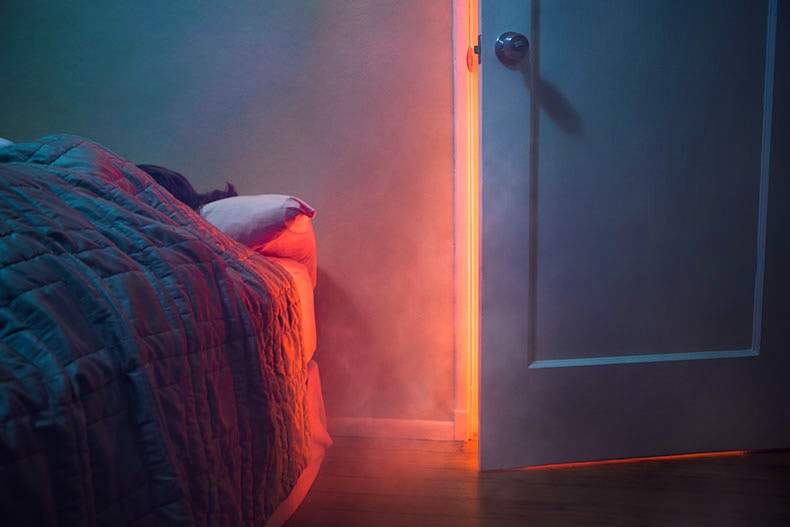The article was previously published on January 25, 2018, and updated for comprehensiveness and accuracy.
A house fire can happen when you least expect it. According to the National Fire Protection Association (NFPA), residential fires across the country have increased 8 percent since 2000. To better protect your home and family, take time to educate yourself and others on how a fire could start. Incorporate these home fire safety tips into your routine.
Test Your Smoke Alarms Regularly
You may already have a few smoke alarms in your house. But do they work? Ensure your smoke alarms are working properly by testing the alarms frequently and changing the batteries when they run low. You should have at least one smoke detector on each floor in your home.
Tip: the NFPA recommends you change the batteries every 6 months. If you don’t have any smoke alarms currently in your home, be sure to add one outside of each bedroom door.
Inspect All of Your Heating Sources
According to another study by the NFPA, heating equipment is among the leading cause of house fires in the US. Their research indicates that heating sources are responsible for over 48,000 house fires each year, which accounts for nearly one in seven house fires.
If using an electric outlet for a product, make sure it is turned off or unplugged when not being used. This includes curling and straightening irons, and space heaters. It’s dangerous to run cables under rugs, so be sure to keep all cords away from rugs and furniture as well. And if you use extension cords, avoid overusing them, or crowding them into one socket. This can cause electrical fires from overuse or overloaded electrical connections.
Keep Your Cooking Areas Clean
If left near a stove or oven, products such as food containers, food wrappers, boxes, or even towels can all catch fire easily. Whenever cooking, or just when the stovetop is hot, make sure you keep that area clear of any flammable materials and items that melt.
Microwave fires are also a cause for concern in the kitchen. Like your stove and oven, you want to clean your microwave regularly. Not only is the buildup of residue in the microwave unsightly, but it also increases the chance of a microwave fire and could pose a health risk because of bacteria growth.
To prevent a microwave fire, avoid microwaving metals, such as aluminum foil, plastic and paper bags, non-microwavable containers, Styrofoam containers, and Chinese takeout boxes.
Always Check Your Washer and Dryer
High-powered appliances like your washer and dryer can overheat and cause fires. If you notice leaks in your washer, replace it or hire a professional to fix it immediately. Leaky water can cause electric fires on nearby sockets.
As for your dryer, you want to clear the vents regularly. Dryer lint is notorious for its flammability. It is best to clean your dryer lint filter after each use.
Make a Fire Escape Plan
Having a fire escape plan is essential for the safety of yourself, your family, roommates, etc. Although you may never have to execute the plan, it is always best to be prepared for a home fire.
You don’t have to write it down. But you should have an idea of the best way to exit your home in the case of a fire emergency. If you live with others, talk it over with them so everybody is on the same page in case something happens. Go over exit points, fire extinguisher locations, etc. It is also ideal to do a simulated fire drill at least once a year.
Make a Home Fire Safety Checklist
Whether you’re a homeowner or renter, it is always best to plan and be prepared for fire emergencies. For more home fire safety tips, check out our other blogs on common fire hazards to look out for or safety tips to protect pets during a fire.
Every second counts in an emergency. If you’re interested in learning more about how to prevent a fire in your home with 24/7 protection, contact us today.
Categories: Family, Fire, Safety Tips


